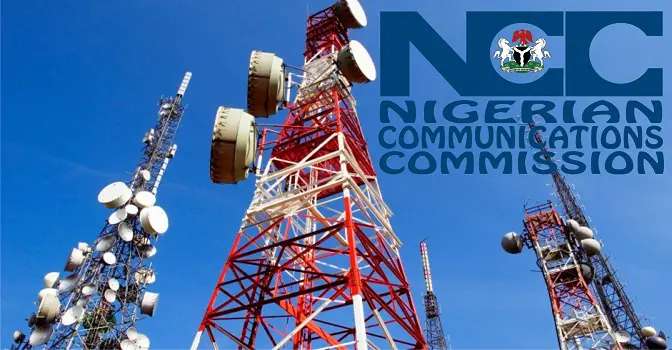Nigeria’s telecommunications industry tele-density has dropped from 115.63% to 102.30% in September according statistics released by the Nigerian Communications Commission (NCC).
The Commission in its telecom industry statistical reports of September, October, and November 2023 published on its the website further revealed that broadband penetration witnessed a similar drop from 45.47% to 40.85% in the same month.
However, the NCC disclosed that active voice subscription statistics witnessed a marginal growth from 220,361,186 to 221,769,883 as of September 2023.
In addition, Internet subscriptions also enjoyed a marginal growth, from 159,034,717 in August 2023 to 160,171,757 in September 2023.
And in October 2023, the industry also experienced a 0.19% growth in Active Voice subscriptions while tele-density stood at 102.49% with Internet subscriptions increasing by 0.60% compared to September 2023.
In November of the same year, the industry also experienced a 0.46% growth in Active Voice subscriptions. Tele-density stood at 102.97% with a 0.57% increase in Internet subscriptions when compared to October 2023.
Tele-density is an index prescribed by the International Telecommunications Union, ITU, for the measurement of telephone penetration in a population by a factor of one line per 100 individuals in the population.
Meanwhile, the Commission said that the report was adjusted to reflect the latest population growth figures and align with international best practices adding that it was predicated upon the Nigerian Population Commission (NPC)’s projection of Nigeria’s population at 216,783,381, as of 2022, replacing the previously used 2017 projection of 190 million people.
Executive Vice Chairman of the NCC, Dr. Aminu Maida, affirmed the nation’s telecom statistical adjustment process as an appropriate step to maintain the integrity of data about the Nigerian telecom industry as collected, collated, and published by the Commission.
He noted that this will also ensure the accurate measurement of the Commission’s progress towards attaining increased broadband penetration rates, improved quality of service, and increased population coverage, among other targets set out in the Strategic Plan for the Federal Ministry of Communications, Innovation, and Digital Economy.
Maida also said such data provides information for both the International Telecommunications Union to which Nigeria belongs, and other development agencies as well as the operators, investors, multilateral agencies, and the public.
The adjustment by the Commission is consistent with Section 89 Subsection 3(d) of the Nigerian Communications Act 2003 (NCA 2003), in which the Commission is mandated to monitor and report on the state of the Nigerian telecommunications industry, provide statistical analysis and identify industry trends concerning services, tariffs, operators, technology, subscribers, and issues of competition.




